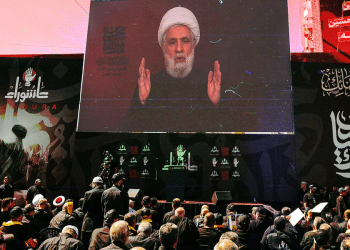Some ten years ago, then-Vice President Joe Biden visited Israel.
That visit was marred with controversy because of the White House's insistence that Israel agree to another settlement freeze. It was one of the low points in the relationship between then-President Barack Obama and Prime Minister Benjamin Netanyahu.
President Donald Trump's surprising peace plan is diametrically opposed to what was proposed ten years ago by the Obama-Biden White House.
Follow Israel Hayom on Facebook and Twitter
The Obama presidency followed the traditional approach of past administrations, which saw the 1967 borders as the basis for any future peace deal.
The new peace plan is expected to reflect the great support Israel enjoys within the Republican base and the special relationship the US has with the Jewish state, by recognizing Israel's security needs.
The plan will most likely depart significantly from the Obama era's proposals.
This clear distinction between Trump and Obama on Israel is designed to bolster the already-high pro-Israel sentiment among key Republican constituents and drive them in large numbers to the polling booth in nine months' time.
Moreover, if Senator Bernie Sanders continues to ride high in the polls and eventually clinches the Democratic nomination, Trump will have an easier time winning the pro-Israel vote this November.
The Vermont senator's contrarian and harsh rhetoric on Israel will unify the Republican party on the need to back the Jewish state as America's ally.
The new plan will likely offer a vision that is starkly different than what Sanders hopes for, and will create an incentive for Trump's pro-Israel supporters to work overtime for the re-election of the current White House occupant.
Such a clear presidential display of friendship and solidarity with Israel can also help sway moderate Jewish voters to break with the Democrats and park their support with the 45th president.
Trump's decision to unveil the plan at this point is most likely designed to dominate the news cycle so that his impeachment trial gets less coverage.
But it would be wrong to accuse Trump of using the peace plan for domestic purposes only. Even if the timing may be a result of his own personal considerations, one cannot ignore the fact that it is the culmination of a long process that was launched in the very first days of his presidency.
In May 2017, Trump convened a summit of Arab leaders in Riyadh, laying the groundwork for a regional framework that he hopes will eventually serve as the backdrop for the Palestinian-Israeli peace deal.
He also took other steps, like the Bahrain workshop in June, when the administration unveiled the economic component of the peace plan as part of a larger effort to establish a mechanism to enhance the Palestinians' lives and help create a more stable Middle East.
Even if peace is still far off, Trump's vision will help cast him as a pro-active and assertive leader who is not afraid of thinking outside the box and does not feel tethered to the traditional US posture regarding this region.
Now we just have to wait and see what the actual impact of the plan is, both on American politics and on the region.




